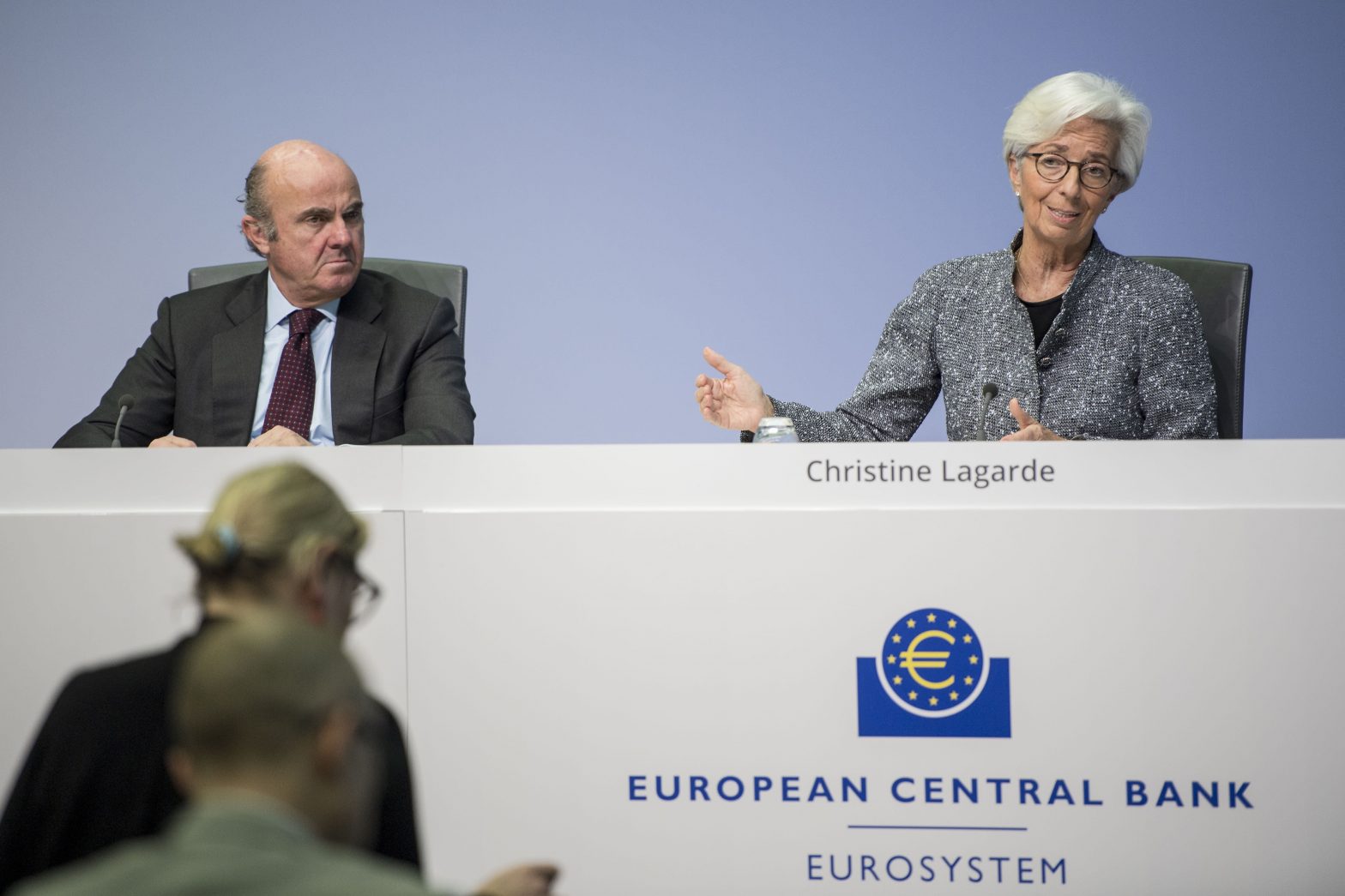Christine Lagarde (R), President of the European Central Bank (ECB), and Vicepresident Luis de Guindos (L)
Thomas Lohnes | Getty Images News | Getty Images
LONDON — The European Central Bank further cut its bond purchases on Thursday but vowed to continue its unprecedented monetary policy support for the euro zone economy into 2022.
The ECB left its benchmark refinancing rate unchanged at 0%, while the rate on its marginal lending facility remained at 0.25% and the rate on its deposit facility was kept at -0.5%, in line with expectations.
Bond buying under its 1.85 trillion euros ($2.19 trillion) Pandemic Emergency Purchase Programme, or PEPP, which is due to end in March 2022, will be cut next quarter as the scheme winds down.
However, bond buys under the Asset Purchase Programme, or APP, will be ramped up to serve as a quantitative easing bridge through the end of the PEPP, having continued at a monthly pace of 20 billion euros in conjunction with the PEPP until now.
“The Governing Council judges that the progress on economic recovery and towards its medium-term inflation target permits a step-by-step reduction in the pace of its asset purchases over the coming quarters,” the ECB said in a statement Thursday.
“But monetary accommodation is still needed for inflation to stabilise at the 2% inflation target over the medium term.”
The ECB said its decisions will enable the Governing Council to maintain flexibility and optionality in its monetary policy decisions in view of the current economic uncertainty facing the 19-member common currency bloc.
Inflation across the euro zone hit a record high of 4.9% in November, while the new Covid-19 omicron variant is spreading across the Continent and the delta strain has already forced several European economies back into partial lockdowns.
The ECB has thus far struck a more dovish tone to the likes of the Bank of England and the U.S. Federal Reserve, having adopted an unprecedentedly loose monetary policy in order to shepherd the euro zone economy through the pandemic.
The euro gained 0.5% against the dollar following the decision, to trade at around $1.134. German 10-year bund yields climbed to -0.3220%. Yields move inversely to prices.
Given the ECB’s emphasis on “flexibility” in the “design and conduct” of its quantitative easing, Gurpreet Gill, macro strategist for global fixed income at Goldman Sachs Asset Management, said in a research note that the overall signal is that the bank’s approach is “transitioning from crisis era support, but remaining accommodative.”
“At the time of the Governing Council’s last meeting, market-based inflation expectations were at 2.1%. Today these are at 1.85%, indicating a divergence in the inflation outlook for Europe versus other advanced economies such as the US and UK. This morning’s PMI data also suggests supply cost pressures may now be peaking,” Gill said.
“On the prospect of a future interest rate rise, we expect the ECB to raise rates in 2024 – once core inflation has likely settled at 1.5% as pandemic and policy distortions subside. That would mean an entire decade of negative rates.”
